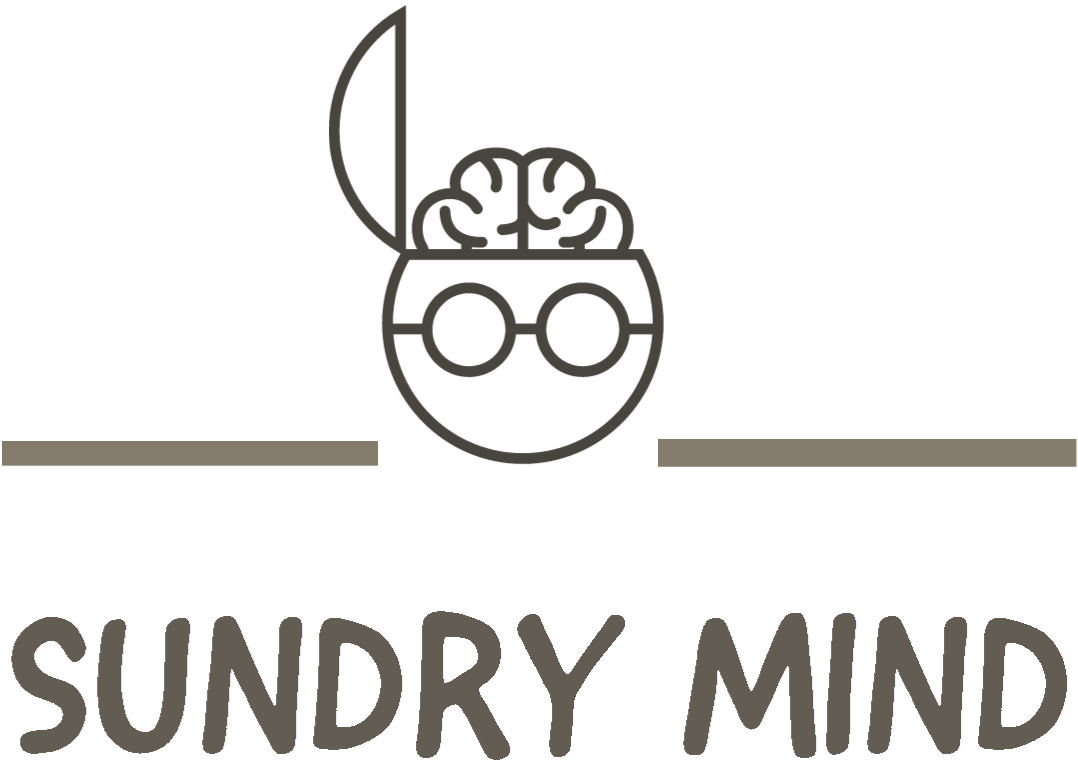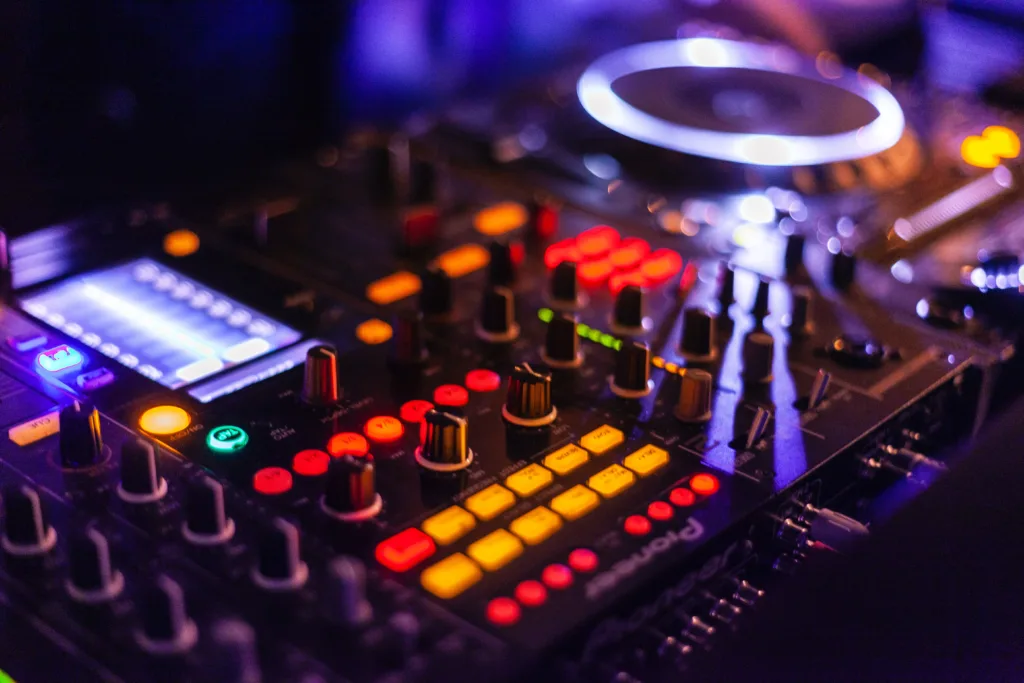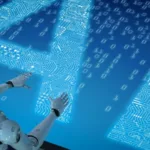Discover the transformative impact of AI in music. AI music is revolutionizing the music industry, from composition and production to personalized recommendations and live performances.
Table of Contents
Introduction
Artificial Intelligence and Machine Learning have become powerful tools in automating tasks and analyzing vast amounts of data. In the context of music, AI refers to the simulation of human intelligence in machines, while ML involves training algorithms to learn patterns and make predictions without explicit programming. Together, these technologies are reshaping the music industry, offering innovative solutions and enhancing the creative process.
The Evolution of AI in Music
Integrating AI and ML in music culminates years of research and technological advancements. Early experiments in computer-generated music date back several decades. However, recent advancements in computing power and the availability of extensive music datasets have propelled AI and ML in music to new heights. One notable example is the collaboration between composer and producer Taryn Southern and the AI platform Amper Music. Taryn used Amper Music’s AI system to compose and produce her album “I AM AI,” where AI played a significant role in the creative process. This project exemplifies how AI can be a powerful tool for musicians, enabling them to explore new musical horizons and push the boundaries of artistic expression.
Below is a summary of how AI in music cutting across various stages of music production:
| Application | Description |
|---|---|
| Music Composition | AI algorithms generate original music compositions based on patterns and styles from vast datasets. |
| Music Production | AI-powered tools analyze audio tracks, adjust levels, enhance sound quality, and offer automated mastering services. |
| Personalized Recommendations | AI algorithms analyze user preferences and listening habits to provide tailored music recommendations. |
| Music Analysis | AI and ML algorithms classify music by genre and detect mood or emotional characteristics. |
| Live Performances | Virtual performers powered by AI generate dynamic and interactive experiences during live performances. |
We will take a look at each of the above topics in detail in the following sections.
Composition and Songwriting with AI Generated Music
AI has the ability to generate original music compositions and lyrics. AI systems can create new compositions that emulate different genres and styles by analyzing patterns, chord progressions, melodies, and other musical elements. AI generated music results from training machine learning algorithms on vast libraries of existing music. These algorithms can produce surprisingly coherent and aesthetically pleasing music, sometimes even difficult to distinguish from pieces composed by human musicians.
The potential of AI generated music is vast. It offers musicians and composers new avenues for inspiration, allowing them to explore uncharted musical territories and experiment with innovative sounds. AI algorithms can generate ideas humans may not have considered, sparking fresh perspectives and pushing the boundaries of creativity. It serves as a tool that can collaborate with human musicians, offering a starting point for composition or assisting in developing complex musical arrangements. For instance, OpenAI’s MuseNet is an AI system capable of composing music in various styles and genres. MuseNet has been trained on a vast dataset of musical compositions, enabling it to generate original pieces based on user inputs. This showcases the potential of AI in music composition, offering musicians a source of inspiration and expanding their creative capabilities.
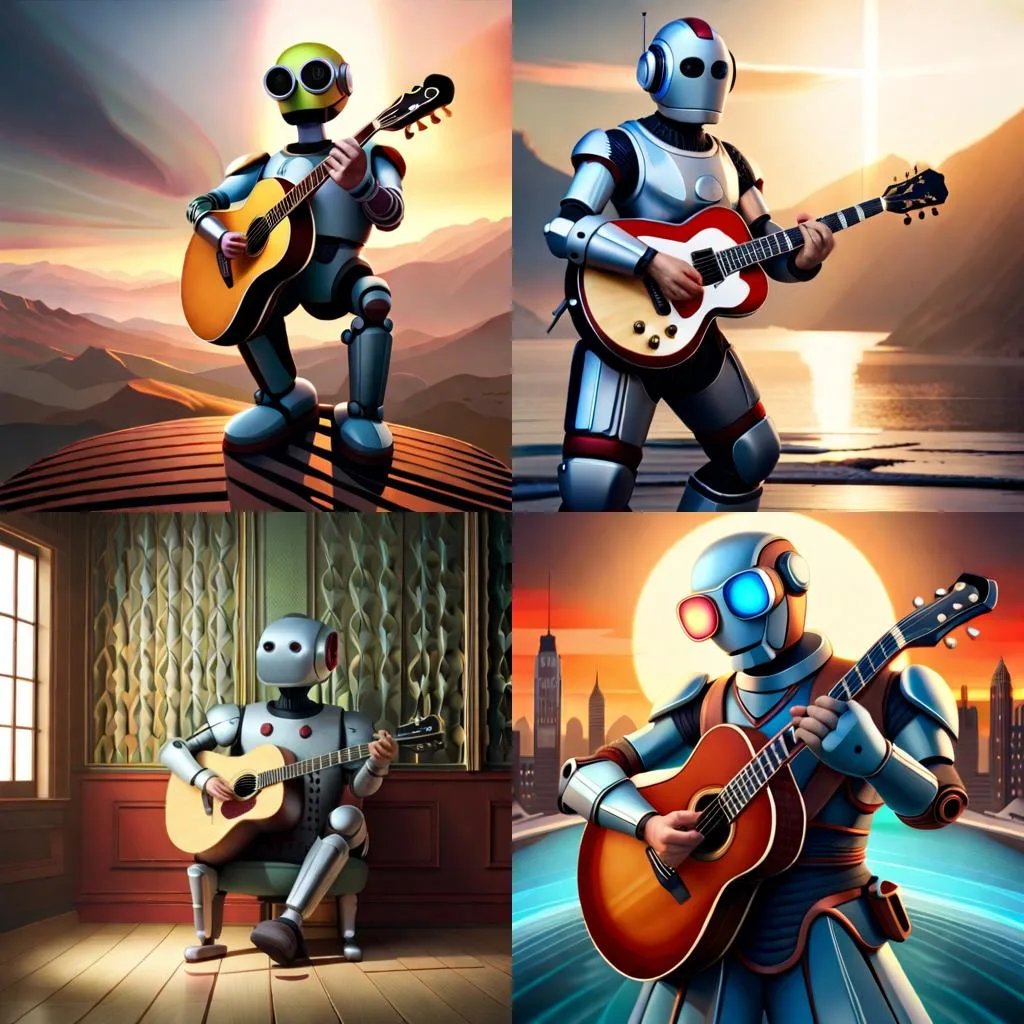
Music Production and Sound Engineering
AI and ML have revolutionized various sectors including music production and sound engineering. Automated tools powered by AI can analyze audio tracks, adjust levels, enhance sound quality, and even offer automated mastering services. These advancements have simplified the production process and improved the overall quality of music recordings.
Landr is an AI-driven platform that offers automated mastering services. It adjusts levels, enhances dynamics, and applies EQ and compression settings to produce professional-grade results. Musicians can upload their tracks, and the software uses machine learning algorithms to analyze and optimize the sound quality. This AI-based mastering technology saves time and allows musicians to achieve high-quality sound without extensive technical expertise.
Moreover, AI-powered tools like iZotope’s VocalSynth have emerged, enabling producers to efficiently manipulate and process vocal tracks. VocalSynth uses machine learning algorithms to analyze and transform vocal recordings, offering a range of vocal effects and synthesizer capabilities. This empowers producers to experiment with unique vocal sounds, harmonies, and effects, enhancing the creative possibilities in music production.
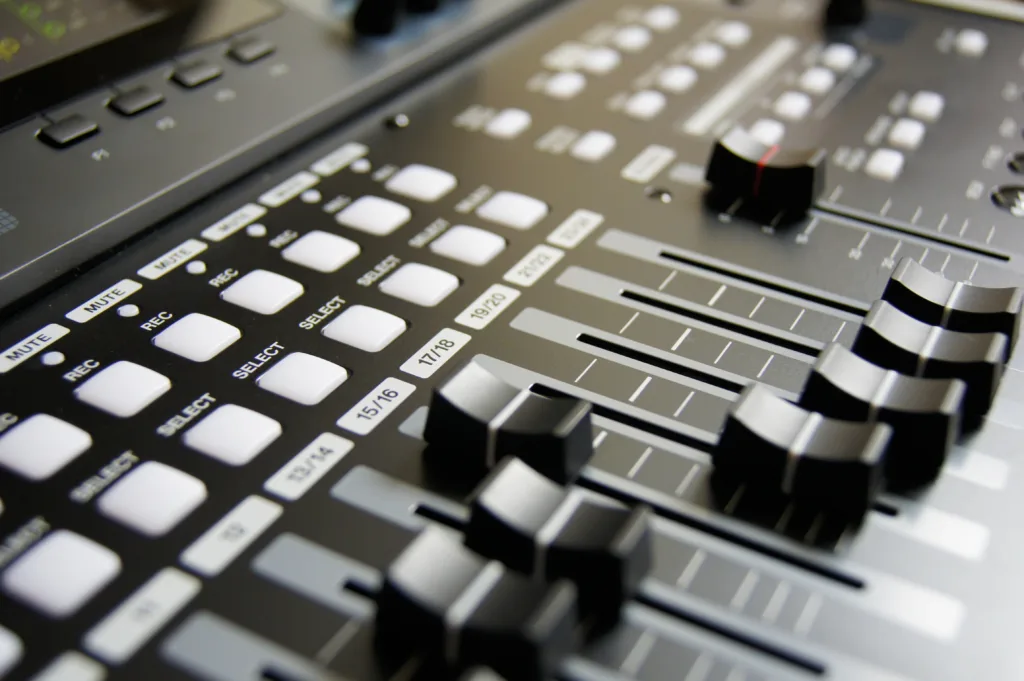
Personalized Music Recommendations
One of the notable impacts of AI and ML in the music industry is personalized music recommendations. Streaming platforms and music apps leverage AI algorithms to analyze user preferences, listening
habits, and contextual data to offer tailored music recommendations. This enhances the music discovery experience for users, introducing them to new artists and genres they might enjoy.
Spotify’s Discover Weekly is a prime example of AI-driven music recommendations. By analyzing user listening habits, playlists, and collaborative filtering techniques, Spotify generates a weekly personalized playlist for each user. Users have widely embraced this feature which is made possible through AI. Its capacity to facilitate the identification of music that resonates with their individual preferences and interests has garnered high praise.
Improving Music Analysis and Classification
AI and ML algorithms excel at analyzing and classifying music. Automatic genre classification and mood detection algorithms can accurately identify a song’s genre and emotional characteristics. These algorithms can analyze audio features such as rhythm, timbre, and tonality to categorize music into various genres or moods.
Shazam, a popular music recognition app, utilizes AI and ML algorithms to identify songs based on a short audio sample. By comparing audio fingerprints with a vast database, Shazam can provide real-time identification of songs, enabling users to discover and explore new music effortlessly.
AI-assisted music transcription tools have also emerged, allowing musicians to convert audio tracks into sheet music. These tools leverage ML algorithms to analyze audio signals and extract the corresponding musical notes, facilitating learning and sharing musical compositions.
Live Performances and Interactive Experiences
AI is also making its mark on live performances and interactive experiences. AI-powered virtual performers and DJs can generate dynamic and engaging performances, captivating audiences with unique styles and abilities. These virtual performers are programmed with AI algorithms that enable them to generate music, respond to audience interactions, and adapt their performance in real time.
For example, the virtual artist “Hatsune Miku” has gained immense popularity in Japan and worldwide. Hatsune Miku is a holographic singer created using AI and ML technologies. Using sophisticated AI algorithms, Hatsune Miku can perform live on stage, interacting with the audience and delivering captivating performances.
The integration of AI in live performances has the potential to create unforgettable and highly personalized experiences. Furthermore, AI algorithms can analyze audience reactions, emotions, and feedback during live performances. This data can be used to adapt the performance in real time, creating an interactive and immersive experience for concert-goers.
Copyright and Intellectual Property
While AI generated content opens new horizons for creativity, it raises copyright and intellectual property challenges. Determining ownership and originality of AI generated music becomes a complex issue. Legal frameworks and regulations must adapt to accommodate these new forms of artistic expression, ensuring fair compensation and protection of creators’ rights.
Various initiatives are underway to address these challenges. For instance, the Open Music Initiative (OMI) is a collaborative effort by music industry stakeholders and technology companies to develop open-source standards that support proper attribution, rights management, and fair compensation in the digital music landscape. By establishing transparent frameworks, OMI aims to ensure that AI generated music respects copyright laws and benefits all stakeholders involved.
Challenges and Ethical Concerns
The rise of AI and ML in music brings several challenges and ethical concerns. One significant concern is the potential bias present in AI algorithms. Machine learning models trained on biased or limited datasets can inadvertently perpetuate social biases in the music they generate or recommend. For example, biased data may result in AI algorithms favouring specific genres or excluding underrepresented artists.
Another concern is the impact of AI on human creativity and employment in the music industry. As AI technologies become more capable of generating music, there is apprehension that human musicians may face challenges regarding employment opportunities and the uniqueness of their creative output. Striking a balance between AI generated music and human creativity is essential to maintain music’s rich diversity and cultural value.
Stakeholders in the music industry, including artists, producers, and technology companies, must collaborate to establish ethical frameworks that promote fairness, diversity, and respect for artistic integrity. Furthermore, ethical guidelines must be established to ensure AI’s responsible and transparent use in music. This includes issues such as data privacy, consent, and the ethical use of AI generated content.
The Human Element in Music
The collaboration between AI and humans can lead to exciting and innovative music creations that combine the best of both worlds. While AI can generate impressive music compositions, it lacks the emotional depth and personal experiences that human musicians bring to their creations. Human musicians can infuse their work with unique stories, cultural influences, and personal perspectives, contributing to the rich tapestry of music.
It is essential to recognize that AI and ML technologies are tools that can inspire and collaborate with human musicians. They provide new avenues for exploration, experimentation, and the democratization of music creation. However, the role of human musicians as storytellers, interpreters, and conveyors of emotion remains irreplaceable.
Future Possibilities and Innovations
The music industry is witnessing exciting trends and innovations in AI and ML. Deep learning models, such as generative adversarial networks (GANs), are applied to create realistic and expressive music compositions. Natural language processing techniques are used to generate lyrics based on themes or emotions. These innovations revolutionized the creative process and enabled musicians to experiment with new ideas and styles.
Looking ahead, the future of AI and ML in music holds immense potential. These technologies will likely find applications in music education, offering personalized learning experiences and assisting students in honing their skills. Emerging trends, such as generative AI models and neural networks, will continue to push the boundaries of musical exploration and inspire new forms of artistic expression.
For example, AI-powered virtual music tutors could revolutionize music education by providing personalized feedback, practice suggestions, and tailored lessons. These virtual tutors would leverage AI algorithms to analyze students’ performances, identify areas for improvement, and provide guidance in a highly individualized manner. This would empower aspiring musicians to enhance their skills and unlock their full potential.
Moreover, advancements in AI and ML could lead to the development of interactive music creation tools that allow users to collaborate with AI systems in real time. This would enable musicians to experiment with different musical ideas and receive immediate feedback and suggestions from AI algorithms. Such tools can potentially democratize music creation and foster a more inclusive and diverse music landscape.
Conclusion
The impact of Artificial Intelligence and Machine Learning in the music industry is undeniable. From composition and production to personalized recommendations and live performances, AI and ML technologies are reshaping how music is created, consumed, and experienced. These technologies offer musicians new avenues for exploration, enhance the music production process, and empower listeners with personalized music experiences.
However, as with any technological advancement, challenges and ethical considerations must be addressed to ensure the industry’s fair and sustainable future. From copyright and ownership concerns to bias and fairness in AI generated music, stakeholders in the music industry must collaborate and establish frameworks that protect the rights of AI generated music and human creators.
As the music industry continues to embrace AI and ML technologies, it is essential to strike a balance between the capabilities of AI and the irreplaceable human element in music. The collaboration between AI and human musicians holds the potential for groundbreaking innovations and creative expressions that resonate deeply with audiences.
Frequently Asked Questions
Can AI completely replace human musicians?
While AI can generate music, it is unlikely to replace human musicians’ creativity and emotional depth. AI is better seen as a tool that can inspire and collaborate with human musicians.
Will AI generated music lead to a decline in originality?
AI generated music can provide new ideas and inspiration, but originality stems from human creativity. Musicians can use AI as a composition starting point, adding their unique style and personal touch.
Is AI generated music considered plagiarism?
AI generated music presents unique copyright challenges. Legal frameworks are evolving to address these concerns, ensuring proper attribution and fair compensation for AI generated and human-created music.
How can AI enhance the music listening experience?
AI-powered personalized music recommendations help users discover new artists and genres they might enjoy. Additionally, AI can assist in creating tailored playlists and immersive live performances.
What are the limitations of AI music?
AI may struggle to capture the depth of human emotion and the nuanced cultural context of music. It is essential to strike a balance between AI generated music and human creativity.
what is an AI song generator?
An AI song generator is a technological system that uses artificial intelligence and machine learning algorithms to create original songs. The AI system can generate new compositions by analyzing patterns, melodies, and other musical elements from a vast database of existing songs. The AI song generator enables musicians, songwriters, and music enthusiasts to explore innovative and unique musical ideas, providing a source of inspiration and collaboration. It revolutionizes the creative process by offering new avenues for musical expression and pushing the boundaries of what is possible in music composition.
What is a free AI music generator? How to generate AI music online?
AI music generators online are web-based platforms or software that utilize artificial intelligence and machine learning algorithms to create music. These platforms allow users to generate original compositions by simply inputting their preferences, such as genre, style, or mood. Users can customize elements like tempo, instruments, and duration to generate unique tracks that suit their needs. Most of these platforms allow you to create free music if they are used for non-commercial purposes. Some examples of AI music generators are SoundRaw, boomy, AIVA, soundful which uses deep learning algorithms to compose royalty-free music if you opt for a paid plan. This online AI music generator empowers individuals who may not have formal music training to create professional-quality music for various purposes, such as videos, presentations, or personal projects.
